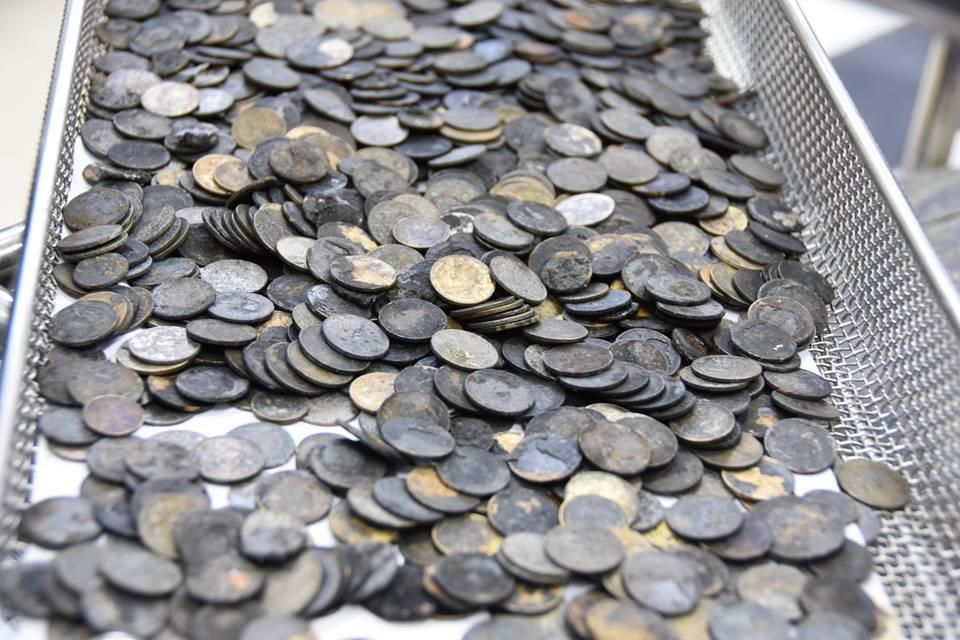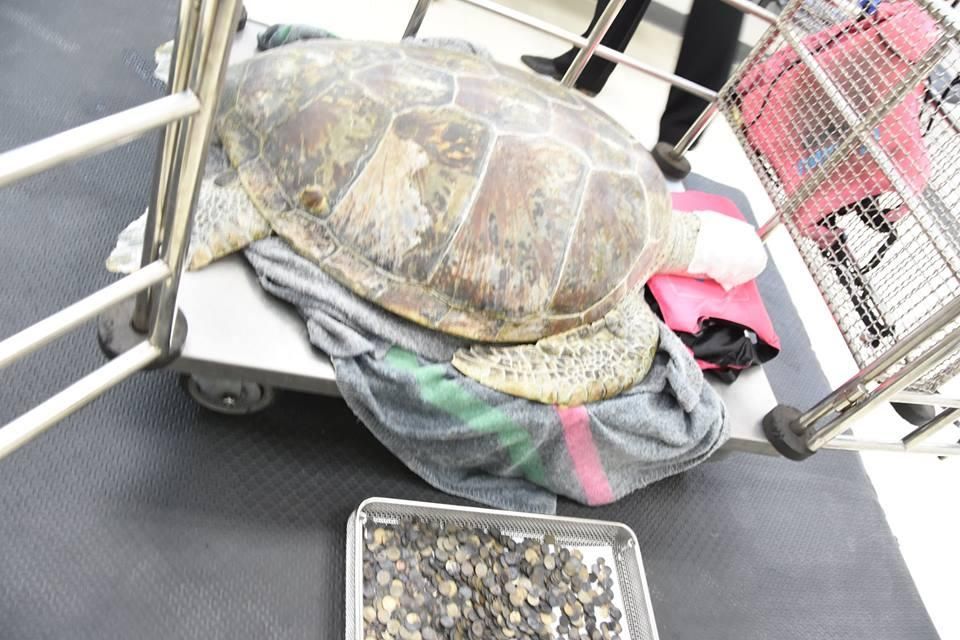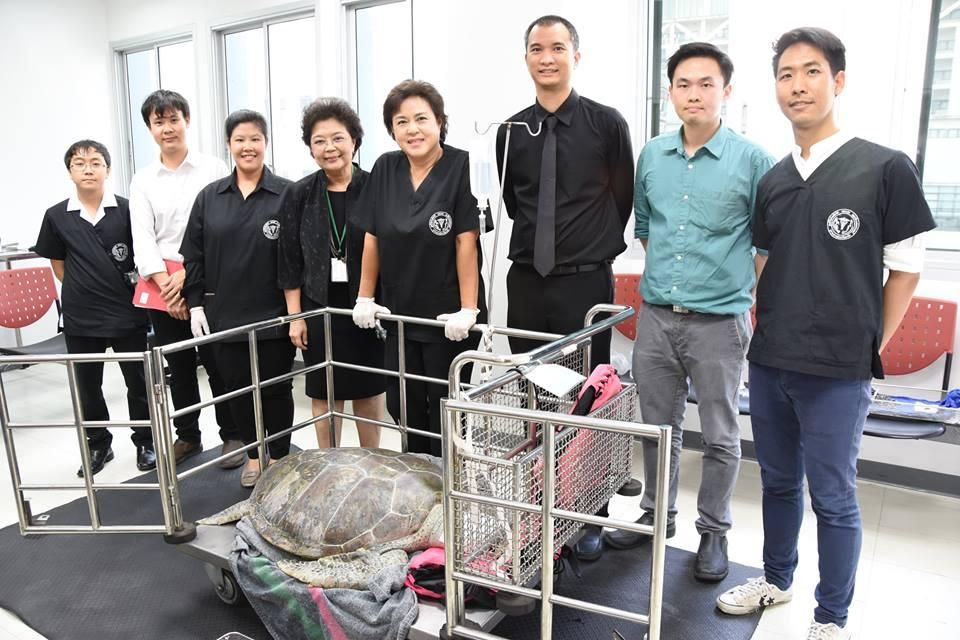This Sea Turtle Ate 11 Pounds of Coins
Veterinarians removed the 900+ coins from Omsin the turtle’s stomach after they noticed she was acting erratic
Omsin the green sea turtle has had it good for much of her life. For years, she lived in a local turtle pond, where she lay in a pool all day and received visitors who threw coins into her habitat for good luck. But, reports Reuters, those good-luck gestures almost turned fatal after veterinarians discovered she had been eating the coins. During emergency surgery, veterinarians extracted 11 pounds of coins from her stomach.
Veterinarians from Chuallongkorn University performed an hours-long operation on the turtle after her keepers noticed she was acting strangely and took her in for a checkup, Reuters reports. Ironically—and descriptively—Omsin’s name means “piggy bank” in Thai. The vets pulled more than 900 coins out of her belly.
As the AP reports, the weight of the coins cracked Omsin’s shell. The coins were so heavy they were inhibiting her ability to swim. The German press agency adds that she had been living in a local turtle pond but was sent to a conservation center owned by the Thai navy this summer when her local pond closed down.
Green sea turtles are not just adorable—they’re endangered. The animals’ population has been dramatically reduced in recent years due to harvesting of their eggs, entanglement in fishing nets and habitat decline. According to the IUCN, populations of mature females capable of nesting have declined at least 48 percent in the past three generations.
Plenty of other sea creatures have a habit of eating humans’ trash. As SmartNews reported in 2014, the world’s oceans are thought to be filled with at least 5.25 trillion pieces of plastic weighing nearly 269,000 tons. Much of that trash ends up in the bellies of marine life. Sea turtles are particularly susceptible to debris in the water, and the trash they eat can cause everything from digestive problems to malnutrition.
Omsin isn’t the only animal in captivity who’s faced serious health problems due to coins, either. The Oklahoman’s Matt Patterson reports that the Oklahoma Zoo has had to launch a public information campaign to remind visitors that habitats are not wishing wells—and that coins cause real dangers to animals. Hopefully Omsin will now recover without the stash of cash that was hiding inside her stomach—and will remind others to think twice before emptying their pockets in an animal’s home.
/https://tf-cmsv2-smithsonianmag-media.s3.amazonaws.com/accounts/headshot/erin.png)



/https://tf-cmsv2-smithsonianmag-media.s3.amazonaws.com/accounts/headshot/erin.png)